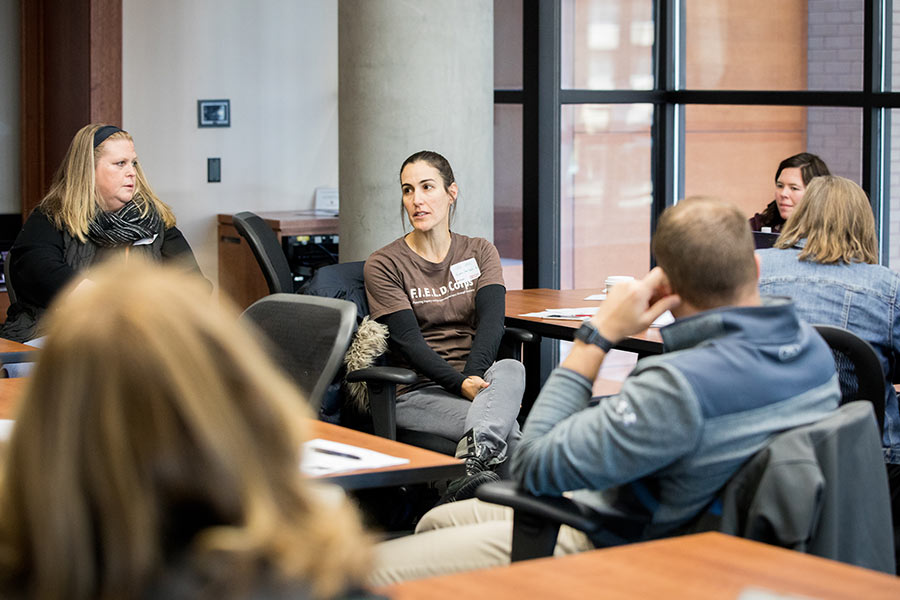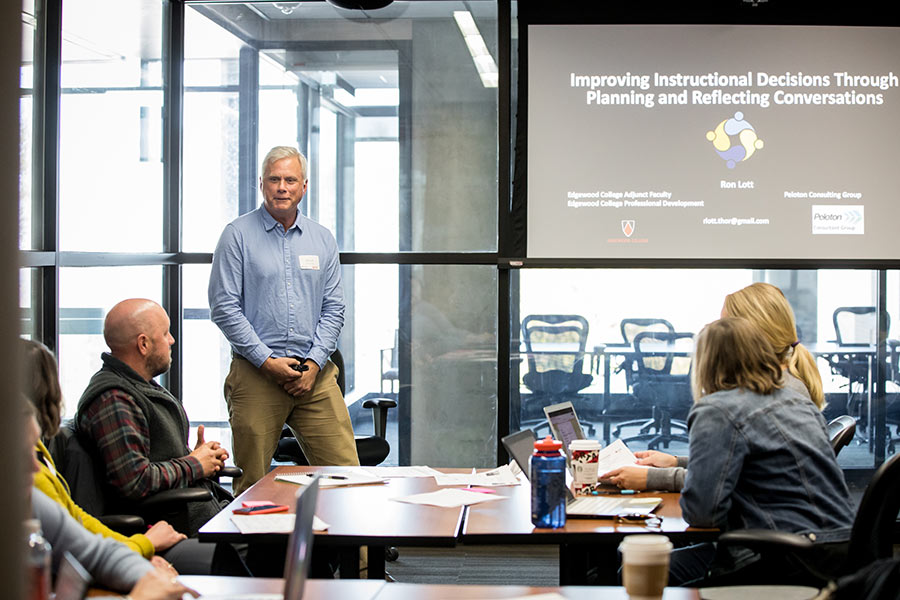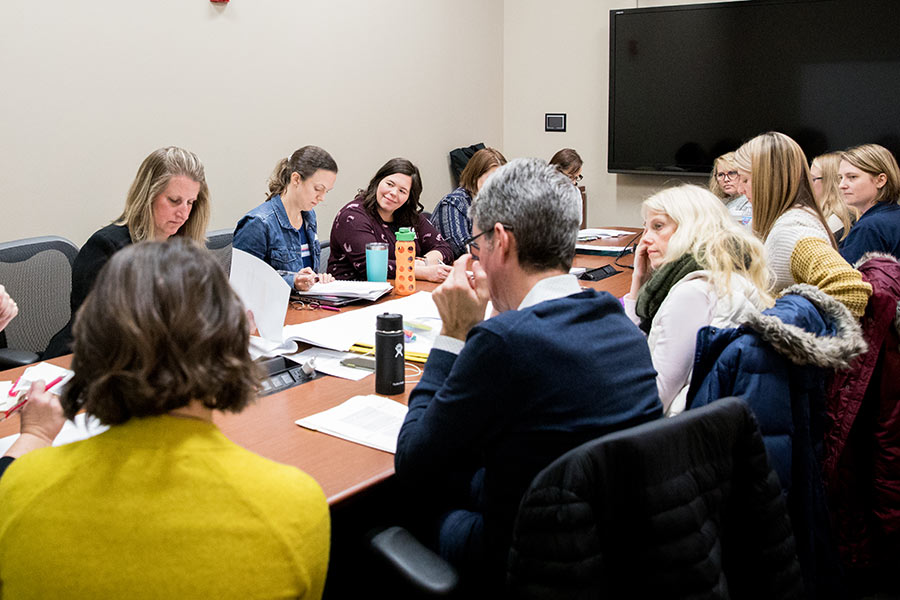
Students, families, and educators are all concerned with how to best prepare students for the transition from high school to college. This topic was on the minds of all who attended PLACE’s Fall College Symposia Series. K-12 teachers, professors, and support staff from both secondary and post-secondary levels came together to discuss best practices to support students as they make the transition from high school to college in writing, math, and science. The series also included, for the first time, a symposium on instructional coaching led by Sandra Taylor-Marshall. Each of the four symposia were successful and well-received by all who attended.
The writing symposium brought together K-12 educators with first-year writing instructors, staff, and faculty from UW–Madison, Madison College, and UW–Whitewater to discuss the writing skills necessary for a successful transition to the collegiate level. The morning sessions focused on writing expectations, instruction, and outcomes across multiple genres in various first-year writing intensive courses. The afternoon shifted the focus to how assessment can support or hinder writers as they develop their skills. The sharing of ideas and resources across the grade levels provided everyone with a chance to take in new instructional and assessment practices and consider how those practices might benefit their students. As one participant said, “I love coming here every single year. I was talking with another member of my group and we feel like we need to take a day off tomorrow just to process and talk and plan to implement all of our ideas from today!”

Representatives from University of Wisconsin System schools, Madison College, DPI, and K-12 districts in Wisconsin discussed ways to support students in the transition from high school to college mathematics. The morning sessions at the math symposium focused on the initiatives across the University of Wisconsin System to align college gateway math courses, create pathways for students that make sense for their academic and career goals, and revise pedagogical practices for teaching math at the college level. One participant noted, “I learned about how math is changing at the college level. I learned about courses offered at other schools and what they are doing to help students improve their math skills.” The afternoon sessions focused on instruction and assessment at the college math level. An important discussion in one of the afternoon breakout sessions engaged participants in a conversation about de-tracking high school math. The discussion addressed how to adapt instruction when de-tracking courses as well as how to work with the community and families when de-tracking.
The science symposium included faculty from UW–Madison, Edgewood College, Madison College, and K-12 science educators. The morning sessions focused on what instruction and assessment look like at the college level, what has changed over time, and what resources exist for students in college. In the afternoon, students from Madison College, Edgewood College, and UW–Madison shared what was helpful to them in high school and what would have been helpful to them in the transition from high school to college. A participant explained the benefit of hearing from faculty and students: “I especially appreciated the information about the revamp of chemistry courses at UW–Madison and the candid feedback from the college students. This information helps me to direct students toward study skills necessary to be successful at the college level.” The afternoon sessions discussed topics related to preparing students for higher education science courses including science communication, project-based science, research, and culturally relevant science. A teacher shared their thoughts about the day: “The instructional shifts that we are making in K-12 are moving us in the right direction. The panelists confirmed that the science and math practices [of reflection and metacognition]… are more important for success in science than a specific body of knowledge.”

In the coaching symposium, participants attended sessions and roundtables focusing on a myriad of topics including achieving the promise of professional learning communities; increasing coaching effectiveness; facilitating professional learning using student data; managing the role of instructional coach (or instructional leader); instructional coaching in math; and constructive coaching conversations.
Symposia participants shared that this was the best professional development they had experienced in a long time. To keep updated on future symposia or to contact any of our PLACE educational team leaders, please visit https://place.education.wisc.edu/k12-programs/college-readiness-symposia-series/.
